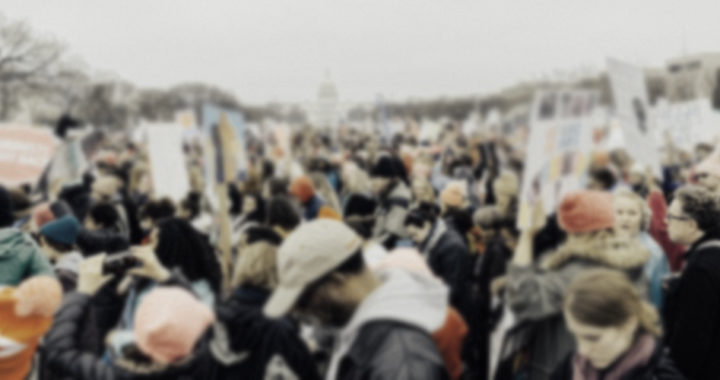The Chicano Movement is a collective term for the civil rights movement in the United States that extended the Mexican-American Civil Rights Movement of the 1960s to cover the periods 1940s to 1970s. The primary goal of the movement is to empower Mexican-Americans through the assertion and promotion of various rights pertaining to property ownership and civil liberties.
However, it is important to remember that like any other civil rights movement, the Chicano Movement emerged from various issues and situations that affected the involved population. This means that the origins of the movement came from different social and political facets.
This article lists down and discusses the factors that ignited and further stirred the Mexican-American Civil Rights Movement of the 1960s and the entire Chicano Movement in the U.S.
Origins and Causes of the Chicano Movement
1. Historical Geographical Conflict
The United States and Mexico had been embroiled in a territorial conflict long before the movement broke out. In other words, the origin of the Chicano Movement further stems back from the historical struggle involving land ownership.
According to the book “Chicano: The History of the Mexican American Civil Rights Movement” by Francisco Arturo Rosales, before U.S. annexed its present southwest territory, Mexico considered this area as part of its jurisdiction. Take note that when Mexico received independence from Spain in 1821, it inherited an expansive track of lands that included present-day Texas, New Mexico, Arizona, and California, as well as portions of Utah, Colorado, Oklahoma, and Kansas.
The Anglo-Americans were able to populate the aforementioned lands due to minimal Mexican population. Their numbers swelled over time and this gave them momentum to assert their independence from the Mexican government, which according to them, was inadequate in giving them appropriate protection.
Land dispute eventually brewed between the governments of U.S. and Mexico that further escalated to the Mexican-American War in 1846. The war ended in 1848 when the two countries reached an agreement that was pronounced under the Treaty of Guadalupe Hidalgo. This agreement involved making portion of southwest North America an official part of the U.S. territory and jurisdiction. Mexicans living in the annexed lands were granted American citizenship as well.
2. Pervasive Dominance of the Anglo-Americans
Another cause of the Chicano Movement was the overbearing dominance of Anglo-Americans over Mexican-Americans. Although the Treaty of Guadalupe Hidalgo resolved the territorial dispute between the U.S. and Mexico, it brought forth problems involving the social status of Mexicans who were granted American citizenship. These people felt that they were perceived and treated as mere second-class citizens by their Anglo-American counterparts.
The inferiority of the Mexican-Americans under the Anglo-Americans indicated that the tides were turned. Remember that the Anglo-American population initially felt that the Mexican government failed to protect them. However, with the enforcement of the Treaty of Guadalupe Hidalgo, the failed integration due to pervasive discrimination made Mexican-Americans geld that the American government failed to protect them, especially their rights and liberties.
Years of discrimination compelled Mexican-Americans to assert their rightful place in the American society. Like in any other civil rights movements nonetheless, the Chicanos Movement was an attempt to put an end to discrimination.
3. Momentum From the Greater Civil Rights Movement
The Chicano Movement started to hold ground as more Mexican-Americans took an active role in various facets of American social life and politics while also embracing the concept of liberalism and progressivism.
An entry found in the reference book edited by Jeffrey D. Schultz mentioned the movement was drawn from a liberalism perspective that seeks to promote and protect the right to individual liberty. Moreover, it also mentioned that liberalism was becoming prominent across Mexicans. In Mexico to be specific, brothers Ricardo Flores Magon and Enrique Flores Magon established the Mexican Liberal Party in 1905. Thus, the politics that shaped the Chicano Movement was partly inspired from the concept of liberalism that was shaping Mexican sociopolitical affairs.
The African-American Civil Rights Movement that spanned from 1955 to 1968 was also one of the inspirations of the Chicano Movement. According to the book chapter “African Americans” by Andrew Campbell that was found in the historical book “Mexico and United States” edited by Lee Stacey, even the nonviolent and military aspects of political redress were borrowed from the African-American experiences.
Both group even started working together after ironing out earlier differences. History professor and book author Brian D. Behnken described that it was in October 1967 when Mexican-Americans and African-Americans first staged an event to launch the Treaty of Peace, Harmony, and Mutual Assistance.
In a Nutshell: The Causes of the Chicano Movement
The so-called Chicano Civil Rights Movement started to hold ground as more Mexican Americans took part in everyday American politics. It has been said that such movement was drawn from a liberalism point of view that generally seeks to promote and protect the right of individual liberty.
In considering shared views with the African-American Civil Rights Movement and in consideration of the growing prevalence of liberalism, the Chicano Movement arguably stemmed from growing distaste of minority groups toward the inequality that pervaded in the American society.
FURTHER READINGS AND REFERENCES:
- Behnken, Brian. Ed. 2012. “Introduction.” The Struggle in Black and Brown: African American and Mexican American Relations During the Civil Rights Era. Nebraska: University of Nebraska Press. 2012
- Campbell, Andrew. 2003. “African Americans.” In Ed. Lee Stacy, Mexico and the United States. New York: Marshall Cavendish
- Rosales, Francisco Arturo. 1997. Chicano: The History of the Mexican American Civil Rights Movement. Houston, Texas: Arte Publico Press
- Serrano, Martha. 2004. “Chicana.” In Eds. Joyce P. Moser and Ann Watters, Creating America: Reading and Writing Arguments

